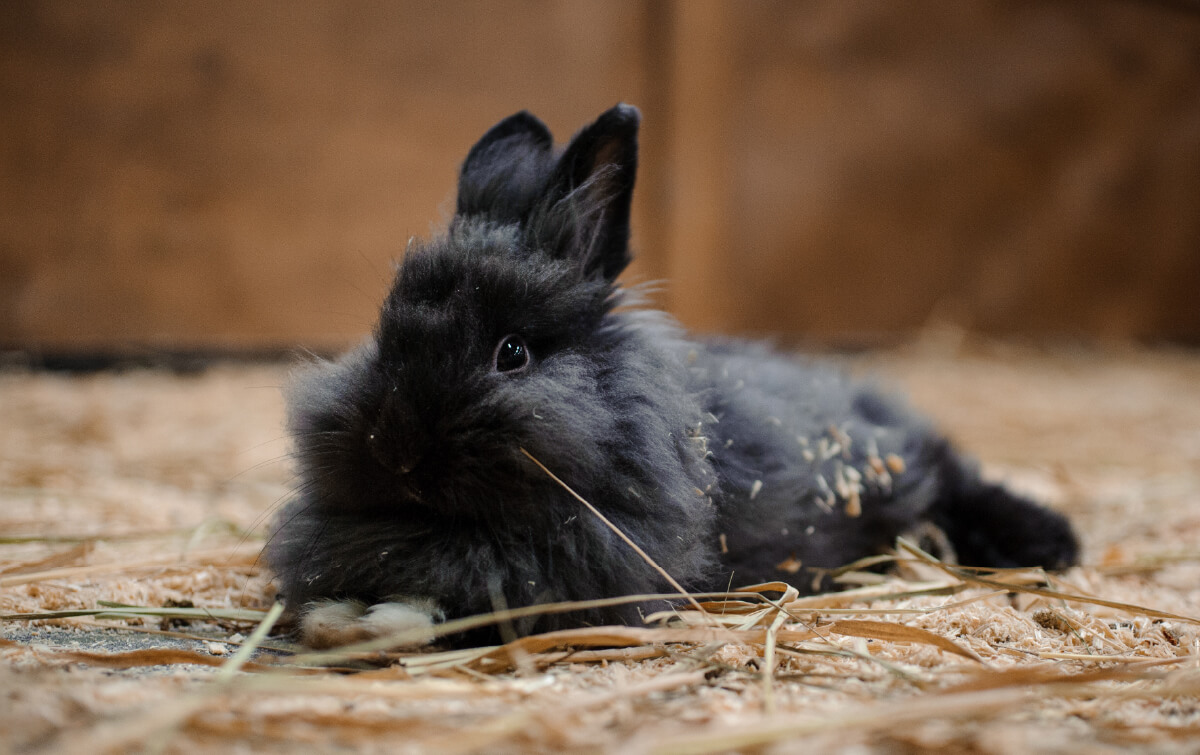5 Myths about Rabbits

There are currently 1.1 million rabbits kept as pets in the UK. Rabbits can make fantastic pets, as they are intelligent, adorable, and absolutely brimming with personality.
However, many owners go into bunny ownership not fully understanding this complicated species. According to the 2023 PDSA Paw Report, the biggest welfare concern facing rabbits is the lack of owner knowledge of basic care needs.
So, to help educate potential owners on the realities of keeping rabbits, we are going to bust some common bunny myths.
1) Rabbits don’t live long!
Did you know the oldest bunny lived for 18 years? Flopsy currently has the world record for longest-ever living rabbit. However, pet bunnies are truly not far behind.
The average life expectancy for a domesticated rabbit is between 8-12 years. So, with the right care, environment, and attention a pet bunny can be expected to live for a long time. Much like our cats and dogs, rabbits are a huge commitment!
2) Rabbits can live alone!
According to the PDSA, around 42% of rabbits in the UK live alone. Rabbits naturally live together in the wild, so this is a very sad statistic.
Bunnies value companionship and company as much as they value food. They should be kept with at least one bonded rabbit. This ensures there is always another bunny around to talk to, play with and groom.
Bunnies that are kept alone have a much higher chance of becoming stressed, bored, and even unwell. Truly the best company for your bunny is another bunny!
In the wild male and female rabbits will live together as bonded pairs. This is the most natural way for rabbits to live, so this also works best for pet rabbits. Of course, consideration will need to be made for preventing reproducing…
Pssst: Check out our guide on introducing rabbits after neutering or spaying.
3) Rabbits are easy to look after!
With their fluffy little faces and wriggling noses, at first glance, bunnies seem to be the perfect stress-free pet. Often prospective owners will see owning bunnies as easier than committing to owning a cat or a dog.
The truth is rabbits are time-consuming and sometimes difficult animals to own. If you cannot commit to a dog or cat, you certainly cannot commit to owning rabbits.
Did you know bunnies go through an adolescent phase? When they reach sexual maturity there will often be marked change in behaviour. Rabbits can become aggressive and territorial during this time and growl, bite, lunge, and attack owners. This behaviour is distressing, and an unprepared owner can find this phase extremely difficult to contend with.
Alongside this potential temperamental behaviour, bunnies require daily cleaning, a large enclosure/exercise space and owners will need to spend time every day with their rabbits.
Bonding with bunnies requires patience and a lot of effort from owners. So, contrary to popular opinion rabbits are not an easy pet and require a huge amount of dedication.
4) Rabbits are cheap!
Did you know a pair of rabbits can cost £11000 over their lifetime? Although bunnies themselves can often be purchased cheaply, don’t allow this to fool you into thinking rabbits are an inexpensive pet…
Rabbits require vaccinations, annual boosters, spaying or neutering and it is very advised to have insurance.
Keep in mind, rabbits are incredibly active creatures. They spend their time in the wild foraging and running around. Many owners do not realise the space and cost required to properly house bunnies. A huge enclosure and permanent access to a safe, spacious exercise area is essential for bunnies.
Rabbits also munch through a lot of food across their lifetime. Rabbits require daily fresh dust-extracted hay, a variety of vegetables and natural high-quality pellets. Costs can add up quickly, so it should be expected that bunnies will cost a minimum of £800 a year.
Psst: Want more information about rabbit’s dietary needs? Check out our blog, on why rabbits need hay.
5) Rabbits are cuddly!
Bunnies look like the perfect fluffy and cuddly pet, however, don’t be fooled by their soft squishy exterior.
Wild rabbits are ground-dwelling prey animals, that evade predation in the wild by digging and living in burrows. Being cuddled and lifted off the floor completely goes against the nature of a rabbit. Most do not look fondly upon being picked up or manipulated by their owners.
It is because of this, that rabbits do not make the best pet for children. Rabbits are strong, agile and will kick, thrash, and potentially bite when being picked up. Controlling a grumpy bunny can be very difficult and handling requires confidence. Children are likely to accidentally hurt a rabbit and/or hurt themselves when attempting to pick it up.
This can be disappointing for children who want a pet they can cuddle. Bunnies are not the right choice for anyone looking for an easy, cuddly, and docile pet.
Pssst: The best way to bond with a rabbit, isn’t to force them to cuddle. Instead, it is about sitting and spending lots of time with them and offering treats.
Rabbit ownership can be difficult when you are unprepared for the reality of rabbits. The key is ensuring you fully understand the huge commitment you are making when taking on a pair of rabbits. For the right owners who can devote lots of space, time, money and attention, bunnies make the most wonderful furry companions.


